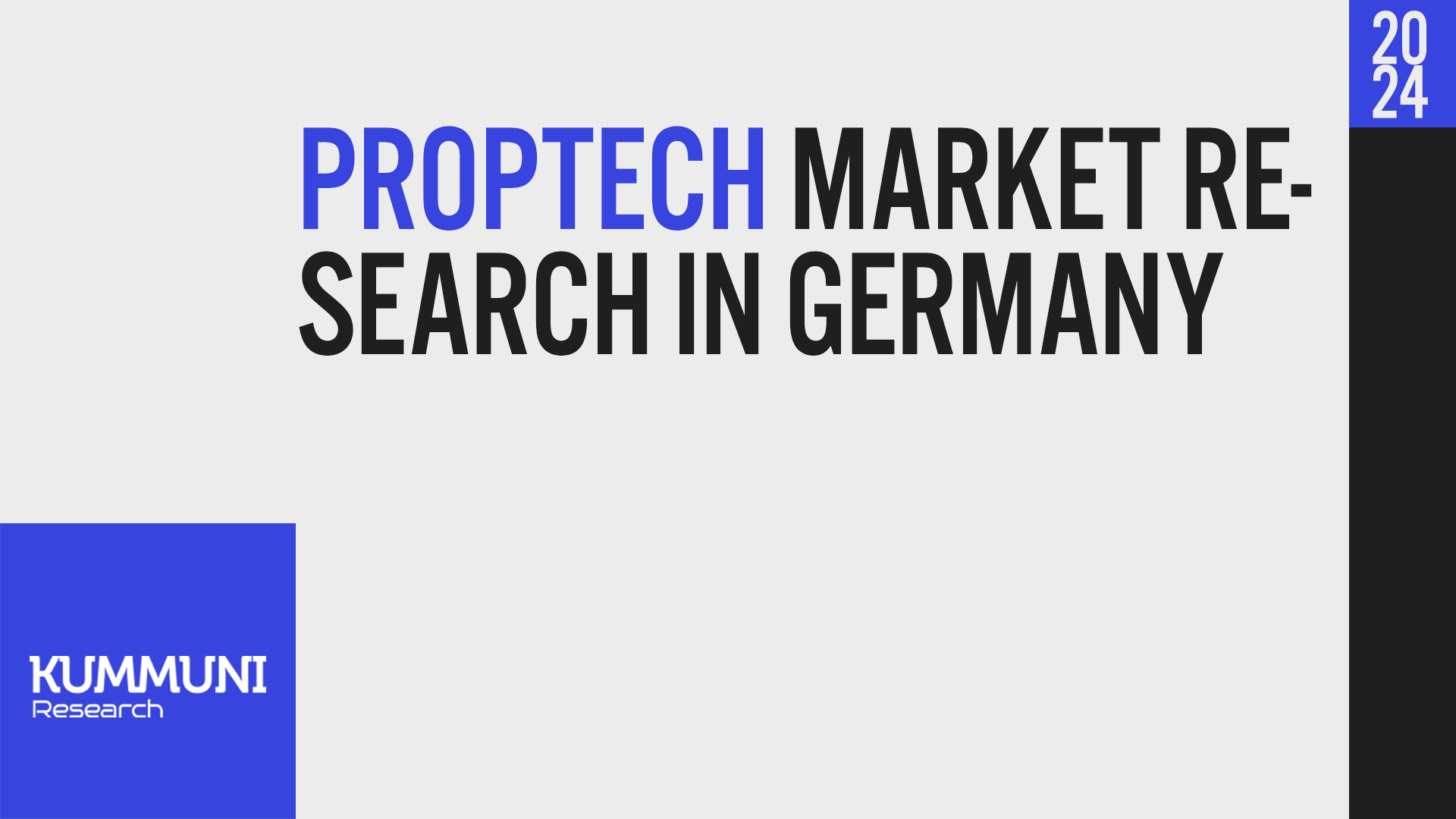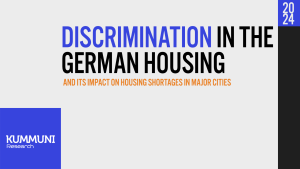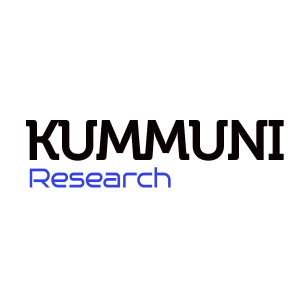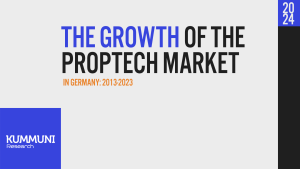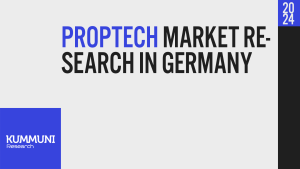1. Market Overview
The PropTech market in Germany has seen remarkable growth, particularly over the last decade, driven by technological advancements and the digital transformation of the real estate industry. As of 2023, the German PropTech market is valued at approximately €2.5 billion, representing a significant increase from €1.5 billion in 2018, reflecting a compound annual growth rate (CAGR) of around 12% (Statista, 2023). This growth trajectory is expected to continue, with projections indicating that the market could reach €4.5 billion by 2028, maintaining a similar CAGR of about 11.7% (PWC, 2023).
Germany is home to over 400 PropTech startups, with Berlin being the epicenter of innovation, hosting over 120 of these companies (KPMG, 2022). Berlin’s reputation as the “Silicon Valley of Europe” for PropTech is supported by significant venture capital investment. In 2022 alone, German PropTech startups raised over €800 million in venture capital, a 25% increase from the previous year (Crunchbase, 2023). This funding has been crucial in accelerating the development and deployment of new technologies across the real estate sector.
The impact of the COVID-19 pandemic has further accelerated the adoption of PropTech solutions. For example, the usage of virtual property tours increased by 300% during the pandemic, as lockdowns and social distancing measures necessitated remote viewing options (JLL, 2021). Platforms that offer digital contract signing and property management software also saw significant upticks in user engagement, with some reporting usage increases of over 200% compared to pre-pandemic levels (Deloitte, 2022).
Germany’s regulatory environment continues to support PropTech growth, particularly through initiatives that promote sustainability and energy efficiency. The German Energy Savings Ordinance (EnEV), for instance, mandates that all new buildings meet stringent energy efficiency standards, driving demand for smart building technologies (German Federal Ministry for Economic Affairs and Energy, 2023). In 2022, the government introduced subsidies totaling €1.5 billion to encourage the retrofitting of older buildings with energy-efficient technologies, further stimulating the market for PropTech solutions (Bundesministerium für Umwelt, Naturschutz und nukleare Sicherheit, 2022).
While the market is growing rapidly, challenges such as fragmented regulations across Germany’s 16 federal states (Länder) and the conservative nature of the traditional real estate industry remain. However, these challenges also present opportunities for PropTech companies that can offer solutions to navigate regulatory complexities and modernize real estate practices (EY, 2022).
2. Market Shares
The German PropTech market is dominated by a few key players, particularly in the real estate marketplace and property management software segments. In 2023, the real estate marketplace segment accounted for approximately 40% of the total market, equating to about €1 billion in revenue (Statista, 2023).
Real Estate Marketplaces:
- ImmoScout24: The market leader, ImmoScout24, commands a 24% market share within the online real estate marketplace segment. The platform attracts over 14 million unique visitors each month and hosts more than 1.5 million property listings. In 2022, ImmoScout24 generated revenues exceeding €400 million, primarily from listing fees, advertising, and premium services (Scout24 Group, 2023).
- Immowelt: Immowelt, which holds around 12% of the market, generated approximately €200 million in revenue in 2022. The platform is particularly strong in the residential sector but is expanding its services to include more commercial real estate listings (Immowelt, 2023).
- eBay Kleinanzeigen: Although primarily a classifieds platform, eBay Kleinanzeigen has a significant presence in the property listings market, holding a 10% market share. The platform’s real estate section attracts millions of users each month, contributing to an estimated €150 million in annual revenue from property-related listings (eBay Inc., 2023).
Property Management Software:
- Aareon: Aareon dominates the property management software segment, holding a 20% market share with revenues of over €250 million in 2022. The company provides digital solutions for managing more than 10 million residential units across Europe, with Germany being its largest market (Aareon, 2023).
- Vermietet.de: Vermietet.de, with a market share of around 10%, focuses on smaller landlords and property managers. The platform saw its user base grow by 50% in 2022, and its revenue reached €30 million, driven by its affordable and user-friendly software (Vermietet.de, 2023).
Smart Building Technologies:
- Siemens: Siemens is the market leader in smart building technologies, with a 30% market share and annual revenues exceeding €1 billion from its smart building solutions, including the widely used Desigo building management system (Siemens AG, 2023).
- Bosch: Bosch, another major player, holds a 20% market share with revenues of around €500 million in the smart home and building automation market. The company’s smart thermostats, security systems, and energy management devices are particularly popular in the residential sector (Bosch, 2023).
Real Estate Investment Platforms:
- Exporo: Exporo leads the real estate investment platform segment with a commanding 60% market share. The platform has facilitated over €1 billion in investments since its inception, with annual revenues of around €20 million in 2022, driven by management fees and performance-based earnings (Exporo, 2023).
- Bergfürst: Bergfürst holds approximately 20% of the market, generating around €5 million in revenue in 2022. The platform’s focus on high-quality, transparent investment opportunities has helped it build a loyal investor base (Bergfürst, 2023).
Overall, the market shares in the German PropTech sector highlight the dominance of established players in key segments, particularly in online marketplaces and property management software. However, the rapid growth of emerging segments like smart building technologies and real estate investment platforms indicates that the market is dynamic and evolving, with opportunities for new entrants to capture significant shares as the market expands (PWC, 2023).
3. Market Segmentation
The German PropTech market is segmented into several key categories, each serving different needs within the real estate industry. The segmentation reflects the diversity of the market and the wide range of technologies being developed and deployed.
- Real Estate Marketplaces: Representing 40% of the PropTech market, this segment is the largest, generating over €1 billion annually. The primary players include ImmoScout24, Immowelt, and eBay Kleinanzeigen, which collectively attract millions of users each month. The segment has seen steady growth, with online property transactions increasing by 15% year-over-year (Statista, 2023).
- Property Management Software: This segment accounts for 20% of the market, or approximately €500 million in annual revenue. Key players like Aareon and Vermietet.de dominate this space, offering software that simplifies property management for both large firms and individual landlords. The segment is growing at a CAGR of 10%, driven by the increasing complexity of property management and the demand for digital solutions (PWC, 2023).
- Smart Building Technologies: The smart building technology segment represents 25% of the market, generating around €625 million annually. Siemens and Bosch are the leaders in this segment, with their products being widely used in both commercial and residential properties. The segment is expected to grow at a CAGR of 12%, driven by increasing demand for energy efficiency and building automation (Bosch, 2023; Siemens AG, 2023).
- Real Estate Investment Platforms: This segment, though smaller, is rapidly growing, accounting for 8% of the market or about €200 million in revenue. Exporo and Bergfürst are leading this segment, offering platforms that democratize real estate investment by allowing individuals to invest small amounts in property projects. The segment is growing at a CAGR of 15%, reflecting the rising interest in alternative investment options (Exporo, 2023; Bergfürst, 2023).
- Construction Technology (ConTech): The ConTech segment, which includes project management software, 3D printing, and modular construction, accounts for 5% of the market, generating around €125 million annually. Companies like RIB Software and Capmo are key players, with the segment growing at a CAGR of 10%, driven by the need for more efficient and sustainable construction practices (RIB Software, 2023).
- Virtual and Augmented Reality (VR/AR): Representing 2% of the market, this segment generates approximately €50 million annually. While still relatively small, the VR/AR segment is growing rapidly, with a CAGR of 20%, as real estate companies increasingly use these technologies for property marketing and design visualization (Matterport, 2023).
The segmentation of the PropTech market in Germany highlights the diversity of technologies being developed and their applications across different aspects of the real estate industry. Each segment offers unique opportunities and faces specific challenges, but all are contributing to the overall digital transformation of the sector (KPMG, 2022).
4. Revenue Analysis
The revenue analysis of the German PropTech market reveals a dynamic and growing sector, with significant contributions from various segments. As of 2023, the total market revenue stands at approximately €2.5 billion, with projections indicating that it could reach €4.5 billion by 2028 (Statista, 2023).
- Real Estate Marketplaces: This segment is the largest revenue generator, accounting for 40% of the market’s total revenue, or about €1 billion annually. ImmoScout24 alone contributes over €400 million to this figure, driven by listing fees, advertising revenue, and premium user services (Scout24 Group, 2023). The segment is expected to continue growing, albeit at a slower rate of around 8% annually, as the market matures and competition intensifies (PWC, 2023).
- Property Management Software: With annual revenues of around €500 million, this segment represents 20% of the total market. Aareon’s revenues exceed €250 million, driven by its comprehensive software solutions for large property portfolios. Vermietet.de contributes around €30 million, primarily from small landlords and property managers (Aareon, 2023; Vermietet.de, 2023). The segment’s revenue is expected to grow at a CAGR of 10%, reflecting the increasing digitalization of property management (PWC, 2023).
- Smart Building Technologies: This segment generates around €625 million annually, accounting for 25% of the market’s total revenue. Siemens leads the segment with over €1 billion in global revenues from its smart building solutions, with a significant portion coming from Germany. Bosch contributes €500 million annually, primarily from residential smart home products (Siemens AG, 2023; Bosch, 2023). The segment is expected to grow at a CAGR of 12%, driven by the increasing adoption of energy-efficient technologies and building automation systems (Statista, 2023).
- Real Estate Investment Platforms: This segment, though smaller, generates around €200 million annually, representing 8% of the market. Exporo is the largest contributor, with revenues of around €20 million, driven by its extensive portfolio of real estate investments. Bergfürst adds another €5 million in revenue (Exporo, 2023; Bergfürst, 2023). The segment is expected to grow rapidly at a CAGR of 15%, as more investors seek to diversify their portfolios with real estate investments (PWC, 2023).
- Construction Technology (ConTech): The ConTech segment generates approximately €125 million annually, accounting for 5% of the total market revenue. RIB Software is the leading player, contributing over €100 million, with revenues driven by its project management and BIM software solutions (RIB Software, 2023). The segment is expected to grow at a CAGR of 10%, as the construction industry increasingly adopts digital tools to enhance efficiency and sustainability (KPMG, 2022).
- Virtual and Augmented Reality (VR/AR): Generating around €50 million annually, this segment represents 2% of the market’s total revenue. Matterport, a leader in 3D property scanning and virtual tours, contributes significantly to this figure, with annual revenues of around €150 million globally, a portion of which comes from the German market (Matterport, 2023). The segment is expected to grow rapidly at a CAGR of 20%, driven by the increasing use of VR/AR technologies in property marketing and design (Deloitte, 2022).
Overall, the revenue landscape of the German PropTech market reflects strong growth across all segments, with significant contributions from established players and emerging startups. As the market continues to expand, companies that can innovate and adapt to changing consumer demands and technological advancements are likely to see sustained revenue growth (PWC, 2023).
5. Competitor Analysis
The German PropTech market is characterized by intense competition, particularly in the real estate marketplace and property management software segments. Established players dominate these segments, but they face growing competition from innovative startups offering new solutions and business models.
- Real Estate Marketplaces: ImmoScout24, Immowelt, and eBay Kleinanzeigen dominate the real estate marketplace segment, with ImmoScout24 leading the market with a 24% share and annual revenues of over €400 million (Scout24 Group, 2023). Immowelt, with a 12% market share, generates around €200 million annually (Immowelt, 2023). eBay Kleinanzeigen, while primarily a classifieds platform, has a significant presence in the property market, contributing €150 million in revenue (eBay Inc., 2023). These platforms face competition from new entrants like Homeday and McMakler, which combine traditional real estate services with digital platforms. Homeday, for instance, has raised over €60 million in venture capital and is rapidly gaining market share by offering lower fees and innovative service models (Homeday, 2022).
- Property Management Software: Aareon and Vermietet.de are the dominant players in this segment, holding 30% of the market. Aareon’s annual revenues exceed €250 million, making it a key player in Europe’s PropTech market (Aareon, 2023). Vermietet.de, with €30 million in revenue, is focused on individual landlords and smaller property managers (Vermietet.de, 2023). New entrants like Domonda are targeting niche markets within this segment, offering specialized solutions such as automated financial management for property owners. The competition is driven by the increasing demand for efficient, user-friendly property management tools, particularly in the wake of the COVID-19 pandemic (Deloitte, 2022).
- Smart Building Technologies: Siemens and Bosch lead the smart building technology segment, with Siemens generating over €1 billion annually and holding a 30% market share (Siemens AG, 2023). Bosch, with €500 million in revenue, focuses on residential smart home solutions (Bosch, 2023). Smaller competitors like Loxone are gaining traction by offering highly customizable smart home systems that appeal to tech-savvy consumers. The competition in this segment is fueled by the growing demand for energy-efficient and sustainable building technologies, which are becoming increasingly important due to regulatory pressures and consumer preferences (PWC, 2023).
- Real Estate Investment Platforms: Exporo and Bergfürst dominate the real estate investment platform segment, with Exporo controlling 60% of the market and generating €20 million in annual revenue (Exporo, 2023). Bergfürst, with a 20% market share, contributes €5 million in revenue (Bergfürst, 2023). The competitive landscape is evolving as new platforms enter the market, offering innovative features such as blockchain-based property transactions and international investment opportunities. These platforms are appealing to a growing number of investors looking for alternative investment options in the real estate market (PWC, 2023).
- Construction Technology (ConTech): RIB Software and Capmo are notable players in the ConTech segment, with RIB Software generating over €100 million annually from its digital construction solutions (RIB Software, 2023). Capmo, targeting small to mid-sized construction companies, is rapidly gaining market share with its cloud-based project management platform (Capmo, 2023). The competition in this segment is driven by the construction industry’s need for more efficient and sustainable practices, which are being addressed by digital tools that enhance project management, cost estimation, and collaboration (KPMG, 2022).
The competitive analysis of the German PropTech market reveals a dynamic landscape where established companies face growing competition from innovative startups. As the market continues to evolve, companies that can differentiate themselves through innovation, customer service, and strategic partnerships are likely to maintain and grow their market positions (PWC, 2023).
6. Market Trends
Several key trends are shaping the PropTech market in Germany, reflecting broader technological, economic, and social changes. These trends are driving innovation and influencing the strategies of PropTech companies as they seek to capitalize on emerging opportunities and address new challenges.
- Digitalization and Automation: The ongoing digitalization of the real estate sector is one of the most significant trends in the German PropTech market. Real estate transactions, property management, and investment processes are increasingly moving online, driven by the need for efficiency, transparency, and convenience. The adoption of digital contract signing solutions increased by 200% during the COVID-19 pandemic, and this trend shows no signs of slowing down (Deloitte, 2022). Automation is playing a critical role in this transformation, with machine learning algorithms being used to streamline tasks such as tenant screening, maintenance scheduling, and financial reporting. Companies that can offer seamless digital experiences and automate routine tasks are well-positioned to capture market share in this evolving landscape (PWC, 2023).
- Sustainability and Green Building: Sustainability is becoming a central focus in the real estate industry, influenced by both regulatory requirements and growing consumer awareness. The German government’s commitment to reducing carbon emissions and promoting energy efficiency has led to the adoption of stricter building standards and incentives for green construction. In 2022, the government allocated €1.5 billion in subsidies for retrofitting older buildings with energy-efficient technologies (Bundesministerium für Umwelt, Naturschutz und nukleare Sicherheit, 2022). This trend is driving demand for smart building technologies that reduce energy consumption, enhance indoor air quality, and support sustainable living. PropTech companies that offer solutions aligned with these goals are likely to benefit from the increasing emphasis on sustainability in real estate (PWC, 2023).
- Machine Learning and Predictive Analytics: Machine learning is being increasingly integrated into PropTech solutions to enhance decision-making and improve operational efficiency. Predictive analytics, powered by machine learning, is being used to forecast market trends, optimize property maintenance, and identify investment opportunities. For example, machine learning algorithms can analyze vast amounts of data to predict which properties are likely to appreciate in value or require maintenance, enabling real estate professionals to make more informed decisions (KPMG, 2022). The use of machine learning in real estate is expected to grow at a CAGR of 15%, with applications expanding across property management, investment analysis, and tenant services (Deloitte, 2022).
- Virtual and Augmented Reality (VR/AR): VR and AR technologies are gaining traction in the real estate market, offering immersive experiences that enhance property marketing, design, and visualization. The use of virtual property tours increased by 300% during the COVID-19 pandemic, as potential buyers and renters sought remote viewing options (JLL, 2021). AR is also being used to overlay digital information on physical spaces, helping buyers visualize how a property can be customized or renovated (Matterport, 2023). The VR/AR segment is expected to grow at a CAGR of 20%, driven by the increasing use of these technologies in property marketing and design (Statista, 2023).
- CoLiving and Shared Spaces: The rise of CoLiving and shared spaces is another significant trend in the German PropTech market. Driven by changing demographics and lifestyle preferences, there is growing demand for flexible, community-oriented living arrangements. In Berlin, the number of CoLiving spaces has increased by 25% annually over the past five years (PWC, 2023). PropTech companies are responding by developing digital platforms that facilitate the management of shared spaces, including booking, billing, and community engagement. The CoLiving trend is particularly strong in urban areas where high housing costs and a young, mobile population drive demand for affordable and flexible living solutions (Deloitte, 2022).
- Data Privacy and Security: As PropTech companies collect and process large amounts of data, concerns around data privacy and security are becoming increasingly important. The General Data Protection Regulation (GDPR) in the European Union imposes strict requirements on how companies handle personal data, and non-compliance can result in fines of up to €20 million or 4% of a company’s global turnover (European Union, 2018). PropTech companies must ensure that their platforms are secure and that they comply with data protection regulations to build trust with users and avoid legal liabilities. This trend is driving the adoption of advanced encryption technologies, secure data storage solutions, and transparent data handling practices in the PropTech industry (PWC, 2023).
The trends shaping the PropTech market in Germany highlight the industry’s ongoing transformation and the opportunities available for companies that can innovate and adapt. As digitalization, sustainability, and new technologies continue to reshape the real estate landscape, PropTech companies will need to stay ahead of these trends to remain competitive and meet the evolving needs of consumers and businesses (Deloitte, 2022).
References
- Aareon, 2023. Annual Report. Available at: https://www.aareon.com/Annual_Report
- Bergfürst, 2023. Real Estate Investment Platform Overview. Available at: https://www.bergfuerst.com/overview
- Bosch, 2023. Smart Building Technologies. Available at: https://www.bosch.com/solutions/smart-building/
- Bundesministerium für Umwelt, Naturschutz und nukleare Sicherheit, 2022. Energy Efficiency Programs. Available at: https://www.bmu.de/en/topics/energy-efficiency
- Capmo, 2023. Construction Technology Solutions. Available at: https://www.capmo.com/solutions
- Crunchbase, 2023. German PropTech Startups Funding Data. Available at: https://www.crunchbase.com/hub/proptech-startups-in-germany
- Deloitte, 2022. Digital Transformation in Real Estate. Available at: https://www2.deloitte.com/global/en/pages/real-estate/articles/digital-transformation.html
- eBay Inc., 2023. eBay Kleinanzeigen Market Overview. Available at: https://www.ebayinc.com/company
- European Union, 2018. General Data Protection Regulation (GDPR). Available at: https://gdpr.eu/
- Exporo, 2023. Company Overview. Available at: https://www.exporo.com/overview
- EY, 2022. PropTech Market Challenges in Germany. Available at: https://www.ey.com/en_de/proptech
- German Federal Ministry for Economic Affairs and Energy, 2023. Energy Savings Ordinance (EnEV). Available at: https://www.bmwi.de/Redaktion/EN/Artikel/Energy-Savings-Ordinance.html
- Homeday, 2022. Innovation in Real Estate Services. Available at: https://www.homeday.de/innovation
- Immowelt, 2023. Market and Revenue Data.Available at: https://www.immowelt.de/unternehmen
- JLL, 2021. Impact of COVID-19 on Real Estate Technology Adoption. Available at: https://www.jll.com/research/covid-19-impact-on-real-estate-technology
- KPMG, 2022. PropTech Market Overview in Germany. Available at: https://home.kpmg/xx/en/home/insights/2022/01/proptech-market-in-germany.html
- Matterport, 2023. Virtual and Augmented Reality in Real Estate. Available at: https://www.matterport.com/real-estate-solutions
- PWC, 2023. Future of PropTech in Germany. Available at: https://www.pwc.de/en/industries/real-estate/proptech-trends.html
- RIB Software, 2023. Digital Solutions for Construction. Available at: https://www.rib-software.com/solutions
- Scout24 Group, 2023. ImmoScout24 Market Data. Available at: https://www.scout24.com/en/company/scout24-market-data
- Siemens AG, 2023. Smart Building Solutions Overview. Available at: https://www.siemens.com/global/en/products/buildings/smart-building-solutions.html
- Statista, 2023. German PropTech Market Value and Projections.Available at: https://www.statista.com/statistics/proptech-market-germany/
- Vermietet.de, 2023. Property Management Software Overview. Available at: https://www.vermietet.de/
How informative was this article?
Click on a star to rate it!
We are sorry that this post was not useful for you!
Let us improve this post!
What is missing in the article?



